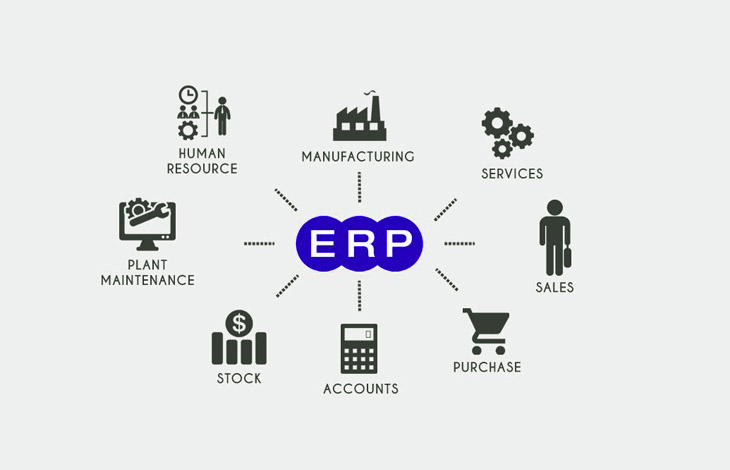Image Source: Google
In today's rapidly evolving business landscape, data has become a critical asset for organizations looking to gain a competitive edge. One of the most effective ways to harness this data and optimize business processes is through the implementation of Enterprise Resource Planning (ERP) systems.
ERP data management systems are powerful tools that enable companies to integrate and manage core business processes in real-time, providing a centralized repository of data that can be accessed and utilized across various departments and functions. This article will explore the key benefits of implementing ERP systems for effective management and how organizations can unlock the power of data to drive growth and success.
The Role of ERP Systems in Modern Business
ERP systems play a crucial role in modern business operations by streamlining processes, enhancing efficiency, and improving decision-making. By consolidating data from different departments such as finance, human resources, supply chain, and sales, ERP systems provide a unified view of the organization, enabling better coordination and collaboration among various functions. Here are some key benefits of implementing ERP systems:
Centralized Data Management
- ERP systems provide a centralized repository of data that can be accessed and updated in real-time, ensuring data consistency and accuracy.
- By eliminating data silos and redundant data entry, ERP systems enable seamless information sharing across departments, improving visibility and transparency.
Improved Efficiency and Productivity
- Automation of repetitive tasks and processes frees up valuable time and resources, allowing employees to focus on more strategic activities.
- Streamlined workflows and standardized processes reduce errors and delays, leading to increased efficiency and productivity.
Enhancing Decision-Making with Real-Time Insights
One of the key benefits of ERP systems is the ability to provide real-time insights and analytics that enable informed decision-making. By consolidating data from different sources and generating comprehensive reports and dashboards, ERP systems empower managers and executives to analyze performance metrics, identify trends, and make data-driven decisions. Here are some ways ERP systems enhance decision-making:
Access to Real-Time Data
- ERP systems enable users to access up-to-date information and key performance indicators (KPIs) from a single dashboard, facilitating quick and informed decision-making.
- Real-time data integration and analytics help organizations spot opportunities and risks early, allowing for timely actions and adjustments.
Advanced Reporting and Analytics
- ERP systems offer advanced reporting and analytics capabilities, allowing users to generate customizable reports, charts, and graphs to gain deeper insights into business operations.
- By analyzing historical data and forecasting future trends, organizations can make strategic decisions that drive growth and profitability.
Empowering Collaboration and Communication
ERP systems promote collaboration and communication by providing a unified platform for sharing information, collaborating on projects, and communicating with stakeholders. By breaking down communication barriers and enabling real-time interactions, ERP systems facilitate teamwork and alignment across the organization. Here are some ways ERP systems empower collaboration:
Integrated Communication Channels
- ERP systems integrate communication tools such as messaging, email, and notifications to facilitate seamless collaboration and information sharing.
- Centralized project management and task assignment features promote teamwork and coordination among employees, leading to improved productivity and efficiency.
Enhanced Customer Relationship Management
- ERP systems include customer relationship management (CRM) modules that enable organizations to track customer interactions, manage sales pipelines, and deliver personalized services.
- By centralizing customer data and interactions, ERP systems help organizations build stronger relationships with customers and improve customer satisfaction and loyalty.
Conclusion
Implementing ERP systems can transform the way organizations manage their business processes, leverage data, and make strategic decisions. By centralizing data, improving efficiency, enhancing decision-making, and empowering collaboration, ERP systems unlock the power of data to drive growth and success. Organizations that invest in ERP systems stand to gain a competitive advantage in today's data-driven business environment and position themselves for long-term success.
